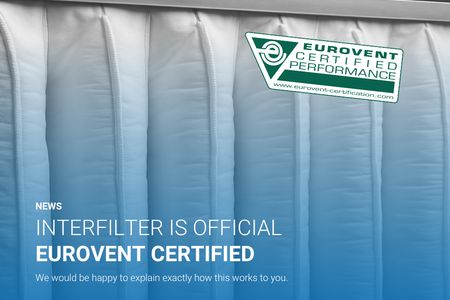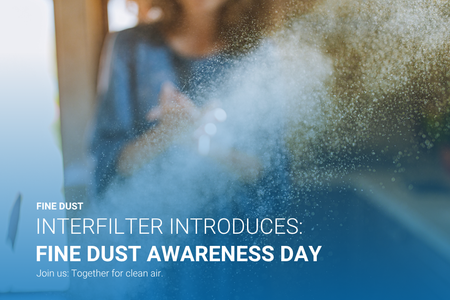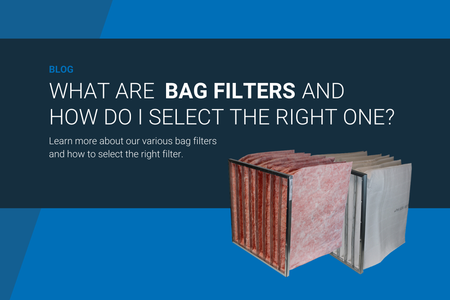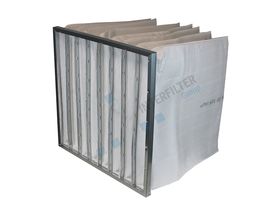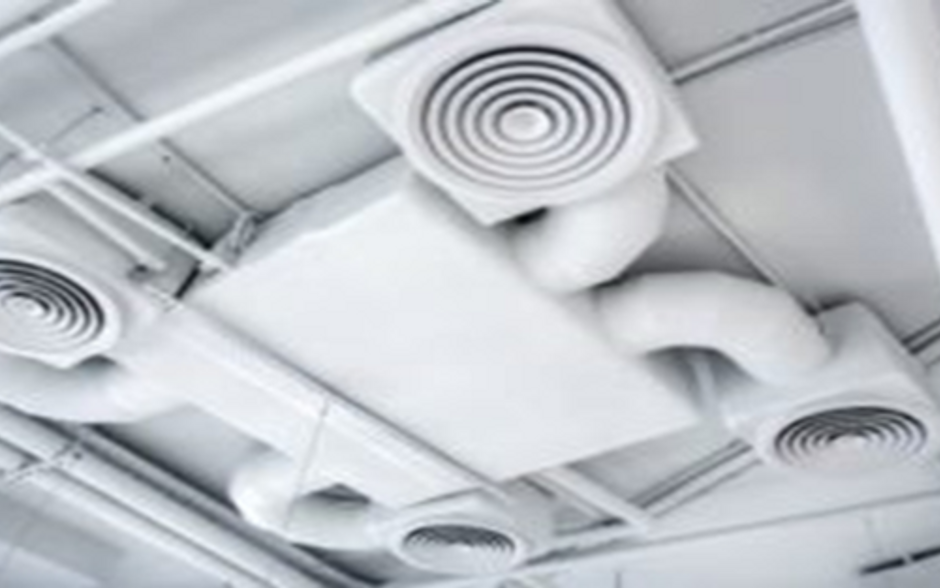

Ben Lamens
Business Development Manager
3 December 2020
Many publications have now been published on the importance of ventilating spaces to limit the spread of the Coronavirus and preferably even prevent it. I would like to add this publication here as well, especially because we still receive regular questions on this topic.
Is it sufficient to filter COVID-19 out of the air with high-efficiency filters?
A question we are frequently asked. Unfortunately, the answer to this is not easy to give because there are multiple factors at play. For example, supply air from outside will hardly contain any Corona-carrying particles, while the air in enclosed spaces such as offices and classrooms can contain these particles due to the presence of Corona-infected individuals in that space. These carrying particles are introduced into the air through actions such as sneezing, coughing, and speaking loudly. Filtering supply air with high-efficiency air filters therefore does not specifically reduce the risk of infection with Corona. High-efficiency air filters in the supply air do help protect the respiratory system from irritation caused by particulate matter in the outside air. If this particulate matter can be captured before it reaches the lungs, it reduces the chance of additional complications in case of infection with Corona.
What about ventilation, which this blog started with?
As I have already mentioned, Corona-infected individuals can introduce virus carriers into the air through actions such as coughing, sneezing, or speaking loudly. These carriers are generally relatively large water droplets, saliva, or aerosols. The virus carriers can be inhaled by individuals who are in close proximity to the spreader and thus become infected. There is also a risk of individuals becoming infected by touching deposited virus carriers and then getting them into their mouths, noses, or eyes via their fingers. Ventilating, replacing indoor air with outdoor air, cleans a space and dilutes the indoor air with outdoor air. As a result, one cubic meter of contaminated indoor air will contain far fewer virus carriers than if ventilation were not carried out. In the latter case, the concentration of virus carriers per cubic meter would actually increase because carriers are added but not removed. This increases the risk of infection.
Do good air filters not help at all against COVID-19?
HEPA filters and high-efficiency ISO ePM1-90% filters are capable of capturing virus carriers. If for any reason air is recirculated in a space, either partially or fully reused, it is advisable to filter this air with the aforementioned filters to capture as many virus carriers as possible. Recirculating without good filters unnecessarily increases the risk of spreading virus carriers in the space due to the air currents that occur during recirculation. However, even in the case of recirculation with the right filters, sufficient ventilation remains necessary because otherwise the CO2 concentration and humidity in the space could become too high. Both scenarios are undesirable. REHVA advises applying at least ePM1-80% filters when recirculation is activated. Our NWES98 PLUS ePM1-90% filters are therefore suitable for use in the recirculation sections of air handling units. In addition to capturing the smallest particulate matter, this filter also removes virus carriers such as aerosols from the air, after which the virucide deactivates the majority of the present viruses.
What are the different ventilation methods?
This can roughly be divided into mechanical and natural ventilation. With natural ventilation, outdoor air enters through open windows and doors, while with mechanical ventilation, air is brought in using fans. Mechanical ventilation provides the most reliable results because the amount of air supplied can be controlled, whereas with natural ventilation, the prevailing wind force and direction determine the airflow. If there is little or no wind, or if it blows from the wrong direction, there will hardly be any ventilation in a space, regardless of how many windows and doors are open. Furthermore, air is generally not filtered with natural ventilation, allowing harmful particulate matter and soot to enter unimpeded. With mechanical ventilation, good air filters capture the majority of these substances, resulting in healthier ventilation air. In addition, this air can also be heated or cooled before being blown into the space.
I hope the above has clarified any uncertainties. If you have any questions or need advice, you can contact me via ben@interfilter.nl or via (0181) 31 11 87. More information about our NWES98 PLUS or HEPA filters can also be found on this website.
 EN
EN
 NL
NL PL
PL 

